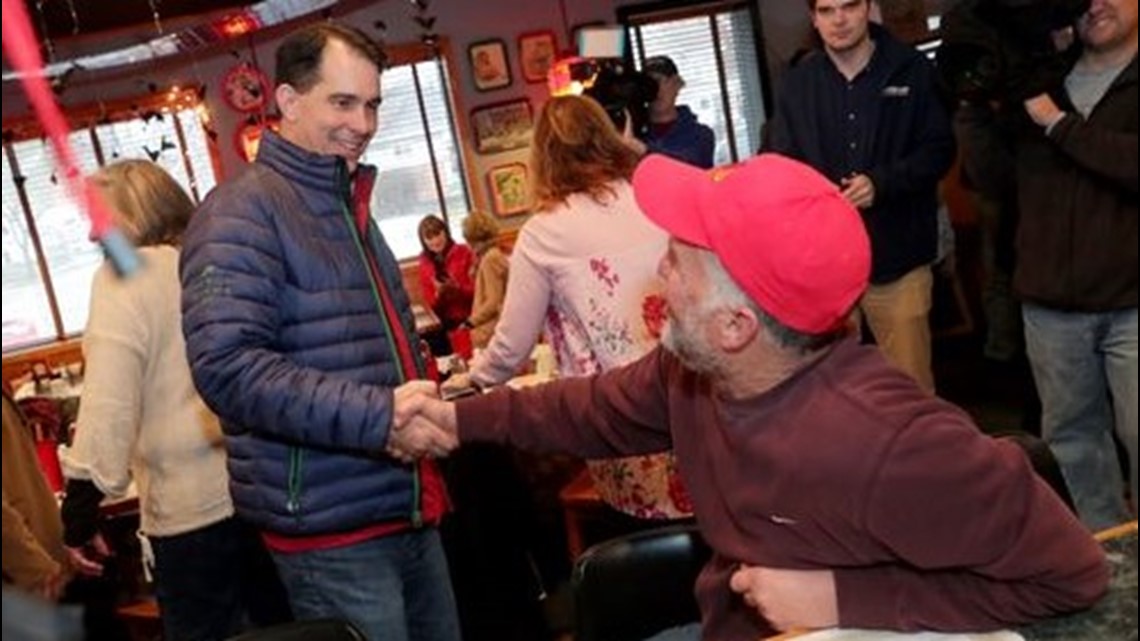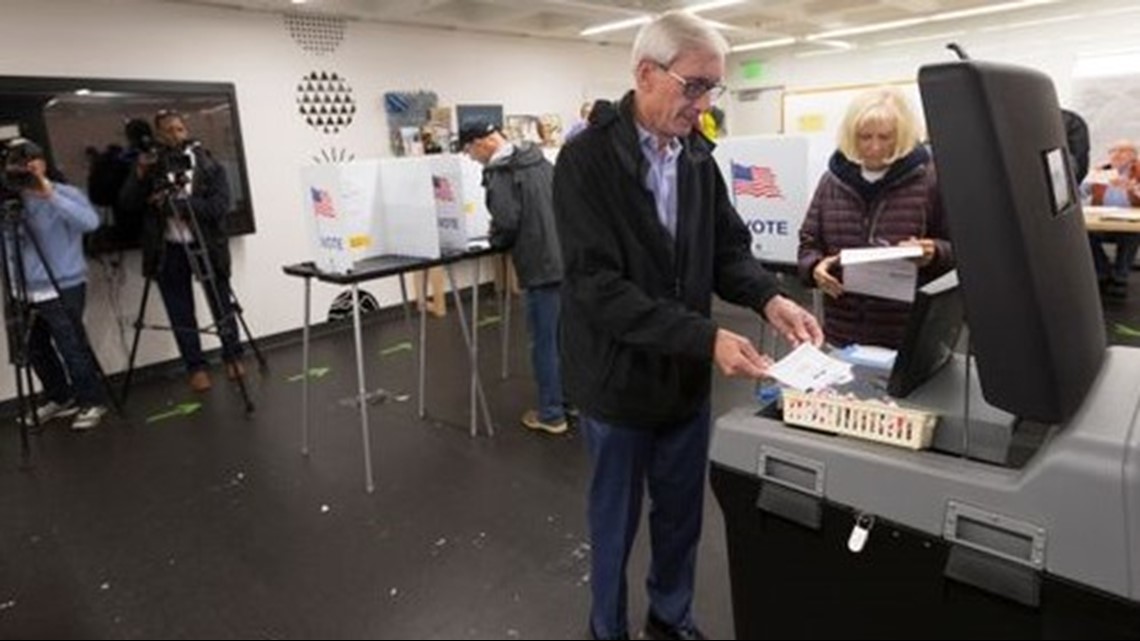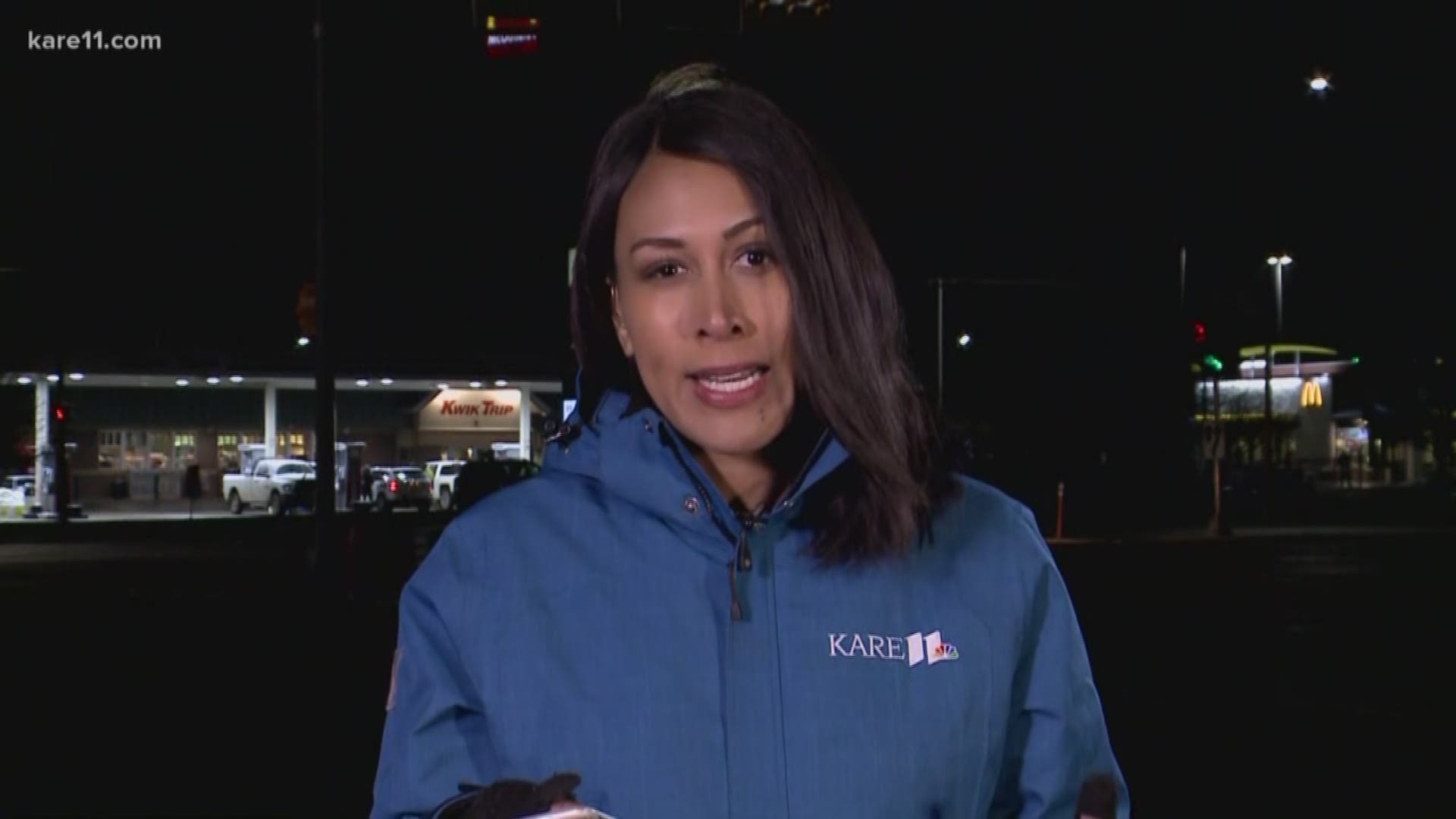MADISON - After upending Wisconsin politics and infuriating liberals across the country, Gov. Scott Walker narrowly lost his bid for a third term Tuesday to Tony Evers, the leader of the education establishment Walker blew up eight years ago.
The Associated Press called the race for Evers at about 1:20 a.m. Wednesday based on unofficial returns.
The race was so close that Lt. Gov. Rebecca Kleefisch said a recount was likely. But an unofficial tally had Evers winning by 49.59 percent to 48.43 percent — a margin that would be too large for a recount if it held.
"The fight is not over," Kleefisch told supporters in Waukesha around 1 a.m. Wednesday. "I am here to tell you this morning that this race is a dead heat. It's too close to call."
"This morning we are preparing for the likelihood of a recount in the state of Wisconsin."
Walker campaign adviser Brian Reisinger said Walker would wait until the official canvass and tallying military ballots before deciding what to do.
This campaign marked Walker's fourth run for governor in eight years, including an unsuccessful effort to recall him in the middle of his first term.
A win by Evers, the state schools superintendent since 2009, would give Democrats a grip on power in Wisconsin's Capitol for the first time in six years.
His running mate, former state Rep. Mandela Barnes, would become the state's first African-American lieutenant governor when the two are sworn in in January.
Walker drew national attention in 2011 when he unveiled a plan to scale back collective bargaining for most public workers and was met with massive protests and, a year later, the recall election.
Walker's limits on unions and his victory in the recall election paved the way for a presidential run.
That campaign sputtered and Walker withdrew from the race in September 2015. He spent the following years trying to re-connect with voters, but Evers and his allies used Walker's presidential run to portray him as a politician more interested in himself than the people of the state.
As the state schools superintendent, Evers for years has been at odds with Walker on school funding, the expansion of private school vouchers and the ability of teachers to collectively bargain. Evers often deployed his criticism of Walker in a low-key fashion and the two at times found ways to work together before Evers mounted his bid for governor last year.
An Evers' victory would end the complete control of the state Capitol that Republicans have enjoyed since 2013. But with Republicans holding onto both houses of the Legislature, Evers would have to find compromise to achieve his priorities.
Some of Evers' goals, such as eliminating the limits on unions known as Act 10 and the state's school voucher programs, would be all but certain to remain out of reach for him with split control of the Capitol.
A candidate who loses by 1 percent or less can demand a recount under a law Walker signed last year. Taxpayers pick up the cost if the loss is within 0.25 percent; the losing candidate would have to pay if the margin is wider than that.
Those rules were put in place to limit when candidates could force recounts in response to Green Party presidential candidate Jill Stein seeking a recount in Wisconsin even though she had received just 1 percent of the vote. Her campaign paid $3.5 million for the recount, which did not change the outcome of Donald Trump's victory in Wisconsin.
Heading into the election, both Evers and Walker had put together plans in case of a recount, according to sources close to both campaigns.
From the outset, Walker faced headwinds and he warned his supporters repeatedly starting in January that a "blue wave" could be coming because of an agitated Democratic base.
Surveys by Marquette University Law School showed a tight race, and the results late Tuesday showed that to be the case.
Polling showed education and health care — traditionally viewed as strong suits for Democrats — were on people's minds. Walker portrayed himself as a champion of those issues while warning that Evers, the state schools superintendent, would raise taxes and hamper the state's economy.
Evers hammered away on Walker on those issues, saying Walker couldn't be trusted after past budget cuts to schools and his efforts to overturn the Affordable Care Act, the federal law known as Obamacare that protects coverage for people with pre-existing conditions.
The race drew national attention, with President Donald Trump campaigning in Mosinee for Walker and former President Barack Obama rallying for votes in Milwaukee for Evers.


Walker had the financial edge in the race, raising about $33 million over the last four years. Evers got in the race last year, but his fundraising didn't hit its stride until after he won an eight-way primary in August. He raised about $9 million since getting in the race in April 2017.
Partisan groups and special interests on both sides flooded additional millions into the race.
Health care loomed as one of the largest issues in the race, with Evers championing the Affordable Care Act and criticizing Walker for authorizing a lawsuit — now pending in federal court — to end the measure.
Evers said he would withdraw Wisconsin from the lawsuit to make sure pre-existing conditions continue to be covered. Walker said if his lawsuit was successful, he would pass a state law to provide those protections — saying at the final days of the campaign that he would put verbatim protections in state law.
Such a provision would be extremely difficult to get through the Republican-held Legislature, which has rejected more modest measures addressing pre-existing conditions. And critics noted the state could not adopt language identical to the Affordable Care Act because the state cannot regulate some types of insurance plans.
Evers called for accepting hundreds of millions of federal aid available under Obamacare to expand Wisconsin's BadgerCare Plus health-care program. Walker has rejected $1.1 billion in such federal help.
Evers said he hoped to eventually set up a "public option" that would allow people to buy into BadgerCare if they did not meet income thresholds for the program.
Walker promised tax cuts, including ones for parents who pay for child care and new college graduates who stay in Wisconsin. He argued Evers would raise taxes that would hurt the state's economy and make life harder for everyday families.
Evers said he would cut income taxes by 10 percent for individuals making up to $100,000 and families making up to $150,000. He would pay for it by scaling back a tax break that has largely eliminated the income tax liabilities of farmers and manufacturers.
In the final days of the race, Evers said, "I'm planning to raise no taxes" — a statement Walker called inconsistent because Evers had said he would consider raising the gas tax and income taxes for the wealthy.
Evers said he wanted to work with Republicans on finding more funding for the state's roads and would be willing to increase the gas tax as part of a deal with them. He said he was also open to implementing tolls.
He refused to say how large of a gas tax he would consider, prompting Walker to contend he could raise it as much as $1 a gallon — a quadrupling of the existing 32.9 cent tax. Evers called that claim ridiculous and a lie but also said "everything's on the table" when it came to how much of an increase he would accept.
Walker said he planned to funnel more money to local governments for their roads but would back off of massive projects in southeastern Wisconsin to keep the state's transportation budget in check.
Evers proposed increasing funding for schools by $1.4 billion over the next two years but did not say how he would fund his plan.
Walker pledged to have the state pay two-thirds of the cost of schools, but he did not provide further details. For this school year, such a plan would have cost about $130 million more.


During the campaign, Walker faced criticism from four of his former cabinet secretaries, including three who endorsed Evers. Evers used it as the focus of one of his final ads in the race, saying the internal opposition showed Walker put his own ambition ahead of the state's citizens.
We want everyone to have free access to our election coverage Tuesday and Wednesday, but we hope you will consider supporting the Journal Sentinel by subscribing at jsonline.com/deal.
Daniel Bice of the Journal Sentinel staff contributed to this report.

